High-Level Policy Session 5: Bridging Digital Divides
WSIS
Session 142
Bridging Digital Divides
According to the latest ITU data, roughly one-third of the global population (2.7 billion people) remain unconnected to the Internet. The figure was an improvement from 2021 but revealed a levelling off from the strong connectivity gains made during the onset and height of the COVID-19 pandemic.
The Internet has become more affordable in all regions of the world and among all income groups. Cost, however, remains a major obstacle to Internet access, especially in low-income economies. The current global economic situation – with high inflation, rising interest rates, and deep uncertainty – could add to the challenge of extending Internet reach in lower-income areas.
Furthermore, the gender gap is still present, with 259 million fewer women having access to the internet than men. Although the world has moved closer to gender parity in the last three years, gender parity scores are low in underdeveloped and vulnerable economies.
We are fully aware that the benefits of the information technology revolution are today unevenly distributed between developed and developing countries and within societies. We are fully committed to turning this digital divide into a digital opportunity for all, particularly for those who risk being left behind and being further marginalized.
[1]//1f8a81b9b0707b63-19211.webchannel-proxy.scarabresearch.com/en/mediacentre/Pages/PR-2022-11-30-Facts-Figures-2022.aspx
[2]//1f8a81b9b0707b63-19211.webchannel-proxy.scarabresearch.com/net/wsis/docs/geneva/official/dop.html
First Phase of the WSIS (10-12 December 2003, Geneva) Geneva Declaration of Principles
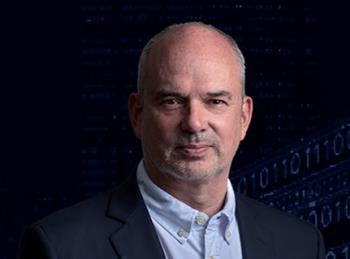
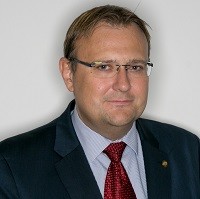
Mr Ponder is Head of the ITU Office for Europe at the International Telecommunication Union (ITU) (Geneva, Switzerland). Within the last years Mr. Ponder has been carrying out numerous projects, activities and initiatives at national, regional and international levels. He has been taking lead role in many international conferences and summits dealing with fostering ICT innovation and development of ICT ecosystem, information society, and advancements of digital economy worldwide, while setting strategies and ensuring their timely implementation. Along the professional career Mr. Ponder held official positions in the public sector and was a contributor to the legislative projects having impact on the public policy. Since 2014 Mr. Ponder has been working for ITU, in Market, Economics and Finance Unit (MEF/ITU), Strategy and Policy Unit (SPU/ITU), Project and Initiatives Department (PRI/ITU). From year 2008 upon his former duties he has acted as Europe Officer (EUR/ITU) as well as Project Manager for European Centres of Excellence Network (CoE-EUR). In August 2008 he was appointed as Coordinator for Europe. After successful recreation of the coordination for the region in 2009 he moved to the General Secretariat becoming Strategy and Policy Coordinator and one year later Senior Strategy and Policy Advisor with the objective to lead the ITU activities on World Summit on the Information Society (WSIS; United Nation Process on ICTs) and its 10 year review, amongst the others successfully establishing prime platforms, i.e. WSIS Forum, WSIS Prizes, WSIS Stocktaking, and organizing WSIS+10 High Level Event (2014) that resulted in negotiated texts. In parallel, since 2011 he has been working as Coordinator for Europe strengthening coordination and implementation mechanism. In 2017 he became the Head of ITU Office for Europe, directing actions, projects, initiatives, experts groups targeting 45 countries and representing ITU in Europe.

Excellence Madame Léocadie NDACAYISABA a été nommée Ministre par le décret n° 100/26/du18 novembre 2021 et Elle est en charge de mener la politique du Gouvernement du Burundi en matières des Télécoms/TIC, de la Communication, des médias et des Postes.
Depuis sa prise de Fonction, Excellence Madame Léocadie NDACAYISABA a porté et fait aboutir auprès du Gouvernement et aux deux chambres du Parlement national le « Projet d’Appui aux Fondements de l’Economie Numérique au Burundi –PAFEN- » sous l’appui technique et financier de la Banque Mondiale : un projet phare qui va jeter les bases durables d’ Une société burundaise fondée sur la connaissance, une société de l’information, et une économie numérique compétitive appuyés sur l’accès universel et inclusif aux infrastructures large bandes .
Excellence Madame Léocadie NDACAYISABA parle couramment le Kirundi, le Français, comprend et parle l’anglais et le swahili.

Agustinho da Silva was born in Ossu, Viqueque, Timor-Leste, on March 11, 1974. He is the third son of a local villager that work hard to raise him and his siblings, in the far east of the island, Viqueque, where he studied prior moving to Dili, the capital, to pursue his higher education.
Graduated from the National University of Timor-Leste (UNTL), in 2003, with a Bachelor Degree in Science Education, he continued his studies in Indonesia, Gayana University, Malang, where he obtained a Master Degree on the same field.
He started in 2006 his professional career as a High School teacher in his own town, Viqueque, prior to become a Lecturer at several higher national institutions, namely Institute Cristal, Dili University, UNITAL and later on at National University of TimorLeste (UNTL), where he lectured until 2016.
From his little town Ossu, Viqueque, José Agustinho move to Dili where he felt in love with Ms. Merita Morais, whom he married in 2010, fathering four beloved kids, all living in Dili now.
Like most young Timorese, he early became an activist against the occupation of his beloved country. After the 1999 Referendum, he joined Partido Democrata Cristão, and from 2002 to 2010 he was elected as Deputy Secretary-General of the Party.From 2011 to present he became the Secretary-General of Khunto’s Party, now member of the coalition government of Timor-Leste. Elected member of the National Parliament in 2017, and again in 2018 after the new elections, he was invited by the Prime-Minister to become the Minister of Transport and Communications, position that he committed to help transform and develop his country.

Mohlopi Phillemon "Philly" Mapulane is the Deputy Minister of Communications and Digital Technologies in South Africa. “Philly” Mapulane is a graduate with a National Diploma in Public Management and Administration and a B-Tech Degree in Public Administration from Technikon South Africa, now incorporated into the University of South Africa. He studied and has obtained a Certificate Programme in Management Development from the University of the Witwatersrand.
He is pursuing a Masters Degree in Public Administration (MPA) from the University of Pretoria.
"Philly" Mapulane is a seasoned local government practitioner who spent 14 years in local government management and administration. Ten (10) of those years, he occupied senior management positions ranging from project coordinator, which sought to subsidise Indigent households on their municipal accounts.
In 2001 he was promoted to Head of the Department of Local Economic Development and Tourism. He served in this position for two years. In February 2003, he was appointed as the Manager: Support Services (Chief Operating Officer).
In January 2007, he was appointed as the Municipal Manager. One of the highlights of his career in local government was his participation in a three (3) months International Leadership Exchange Programme between the Institute of Local Government Management of South Africa (iLGM) (a professional institute of Municipal Managers) and the Society for Local Authority Chief Executives (SOLACE), which is a professional institute of Chief Executives of local authorities in the United Kingdom.

Nelson Arroyo has a Juris Doctor degree of Law and a long active career as a committed public servant, was city council and chairman for San Pedro de Macorís province in 1998, named governor of the same in 2000. In 2006 was elected to Congress until 2016 where he was an active member of the justice commission. In 2020 he was appointed to his current role.
Mr. Arroyo is committed on closing the digital gap and bringing connectivity to those less privileged living in the most distant rural parts of the country. Under Dr. Arroyo’s leadership, Dominican Republic is now one of 3 countries in Latin America implementing 5G technology, ready to end analog television and soon with INDOTEL’s National Bandwidth Plan Project, will deploy the infrastructure necessary to develop telecommunication infrastructure on the rest of the country.

Bawani Selvaratnam joined the Malaysian Communications and Multimedia Commission (MCMC) in 2002 and currently holds the position of Chief Development Officer.
She has had the benefit of working on different portfolios in MCMC, which include, amongst others, the development and review of regulatory policies for the communications industry, managing licensing and spectrum matters, overseeing a multi-billion ringgit project portfolio under the Universal Service Provision programme, as well as playing a lead role in conceptualising and coordinating the development of national digital infrastructure plans and the development of the 5G wholesale licensing and regulatory framework.
Her current responsibilities include formulating strategies to drive continuous improvements to digital connectivity for the country, development of regulatory policies for the postal and courier industry as well implementation of initiatives to increase participation of underserved communities in the digital economy.
Bawani is a lawyer by training and was in legal practice for eight years prior to joining MCMC.
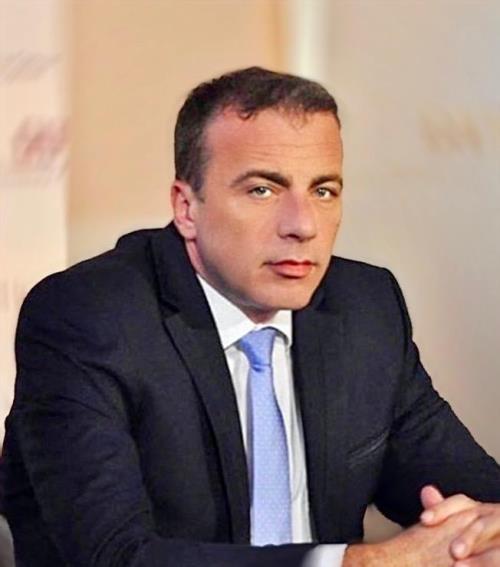
Mr. Draško Milinović was appointed Director-General of Communications Regulatory of Bosnia and Herzegovina on 28 July 2020. Prior to this, Mr. Milinović held several high-level positions such as Director General of Radio-Television of Republika Srpska (RTRS), one of the Public Services in Bosnia and Herzegovina, Public Relations Advisor to the President of Republika Srpska, Head of the Cabinet of the President of Republika Srpska and the Head of the Cabinet of the Prime Minister of Republika Srpska. Mr. Milinović is dedicated to fostering strong regional cooperation and exchange of experience and views on the future regulation that would support the development of emerging technologies and bridging the digital divide to the benefit of all end-users and businesses.

Anatel's Commissioner Carlos Baigorri, currently President of the Board of Directors, has a degree in Economic Sciences from the University of Brasília (UnB), with a Master's and Doctorate in Economics from the Catholic University of Brasília (UCB). Acting in the telecommunications area since 2006, he was a consultant and analyst of sector information in an Association of mobile operators. He has also served as an undergraduate professor at the Catholic University of Brasilia (UCB), at the Institute of Higher Education of Brasília (IESB), and at the Brazilian Institute of Capital Markets (IBMEC). In addition, he wrote articles and book chapters published in Brazil and abroad. He has been a permanent career employee at Anatel since 2009, where he has been previously nominated Executive Superintendent, Competition Superintendent, Obligations Control Superintendent, and Head of Technical Assistance.
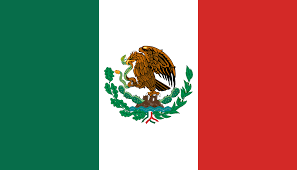

Ambassador Alexandre Fasel has been the Special Representative for Science Diplomacy of the Swiss Federal Department of Foreign Affairs since June 2021. As Ambassador of Switzerland in the United Kingdom from autumn 2017, he contributed to the implementation of the Swiss Government’s ‘Mind the Gap’ strategy on Brexit. During the course of his career he has engaged with the topics of European integration, the interface between foreign and domestic policy, foreign policy analysis and policy formulation as well as multilateral diplomacy, the latter as Head of the UN Division at the Federal Department of Foreign Affairs and as Permanent Representative of Switzerland to the Office of the United Nations and other International Organisations in Geneva.
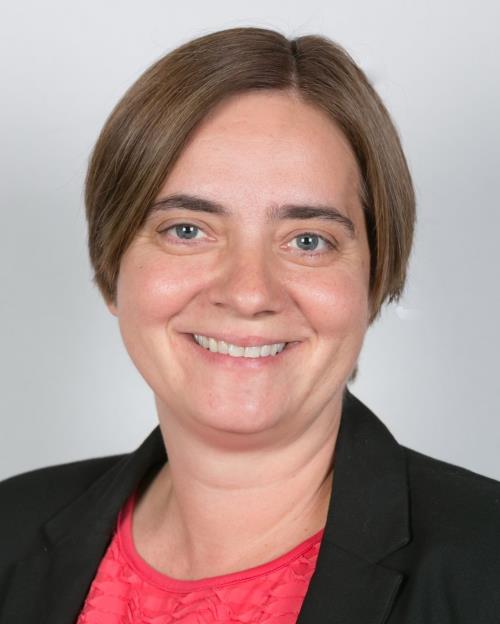
Jayne Stancavage is the Vice President of Policy and Regulatory Affairs. In this role, she leads a team of 20+ experts responsible for developing and implementing strategy to advance Intel’s regulatory and technical policy positions globally on areas including artificial intelligence and data, autonomous vehicles, connectivity (5G, 6G, Wi-Fi, etc.), cybersecurity, intellectual property, manufacturing and sustainability, standards, and supply chain. In addition to her policy work, she has also worked within Intel business units where she coordinated Intel’s internal efforts to embed Wi-Fi capabilities into notebook computer platforms.
Jayne currently serves on the Board of Directors for the US Telecom Training Institute, and the Open RAN Policy Coalition; she is also on the Global mobile Suppliers (GSA) Spectrum Group management team and the Consumer Technology Association (CTA) Board of Industry Leaders. She has previously served multiple terms on the Wi-Fi Alliance Board of Directors. In addition, she continues to chair the US FCC’s WRC Advisory Committee terrestrial services working group and serves on the US State Department’s International Digital Economy and Telecommunication Advisory Committee.
Jayne received both her bachelor's and master's degrees in Political Science from the Massachusetts Institute of Technology.
-
 C1. The role of governments and all stakeholders in the promotion of ICTs for development
C1. The role of governments and all stakeholders in the promotion of ICTs for development
-
 C2. Information and communication infrastructure
C2. Information and communication infrastructure
-
 C3. Access to information and knowledge
C3. Access to information and knowledge
-
 C4. Capacity building
C4. Capacity building
-
 C5. Building confidence and security in use of ICTs
C5. Building confidence and security in use of ICTs
-
 C6. Enabling environment
C6. Enabling environment
-
 C7. ICT applications: benefits in all aspects of life — E-government
C7. ICT applications: benefits in all aspects of life — E-government
-
 C7. ICT applications: benefits in all aspects of life — E-business
C7. ICT applications: benefits in all aspects of life — E-business
-
 C7. ICT applications: benefits in all aspects of life — E-learning
C7. ICT applications: benefits in all aspects of life — E-learning
-
 C7. ICT applications: benefits in all aspects of life — E-health
C7. ICT applications: benefits in all aspects of life — E-health
-
 C7. ICT applications: benefits in all aspects of life — E-employment
C7. ICT applications: benefits in all aspects of life — E-employment
-
 C7. ICT applications: benefits in all aspects of life — E-environment
C7. ICT applications: benefits in all aspects of life — E-environment
-
 C7. ICT applications: benefits in all aspects of life — E-agriculture
C7. ICT applications: benefits in all aspects of life — E-agriculture
-
 C7. ICT applications: benefits in all aspects of life — E-science
C7. ICT applications: benefits in all aspects of life — E-science
-
 C8. Cultural diversity and identity, linguistic diversity and local content
C8. Cultural diversity and identity, linguistic diversity and local content
-
 C9. Media
C9. Media
-
 C10. Ethical dimensions of the Information Society
C10. Ethical dimensions of the Information Society
-
 C11. International and regional cooperation
C11. International and regional cooperation
-
 Goal 1: End poverty in all its forms everywhere
Goal 1: End poverty in all its forms everywhere
-
 Goal 2: End hunger, achieve food security and improved nutrition and promote sustainable agriculture
Goal 2: End hunger, achieve food security and improved nutrition and promote sustainable agriculture
-
 Goal 3: Ensure healthy lives and promote well-being for all
Goal 3: Ensure healthy lives and promote well-being for all
-
 Goal 4: Ensure inclusive and equitable quality education and promote lifelong learning opportunities for all
Goal 4: Ensure inclusive and equitable quality education and promote lifelong learning opportunities for all
-
 Goal 5: Achieve gender equality and empower all women and girls
Goal 5: Achieve gender equality and empower all women and girls
-
 Goal 6: Ensure access to water and sanitation for all
Goal 6: Ensure access to water and sanitation for all
-
 Goal 7: Ensure access to affordable, reliable, sustainable and modern energy for all
Goal 7: Ensure access to affordable, reliable, sustainable and modern energy for all
-
 Goal 8: Promote inclusive and sustainable economic growth, employment and decent work for all
Goal 8: Promote inclusive and sustainable economic growth, employment and decent work for all
-
 Goal 9: Build resilient infrastructure, promote sustainable industrialization and foster innovation
Goal 9: Build resilient infrastructure, promote sustainable industrialization and foster innovation
-
 Goal 10: Reduce inequality within and among countries
Goal 10: Reduce inequality within and among countries
-
 Goal 11: Make cities inclusive, safe, resilient and sustainable
Goal 11: Make cities inclusive, safe, resilient and sustainable
-
 Goal 12: Ensure sustainable consumption and production patterns
Goal 12: Ensure sustainable consumption and production patterns
-
 Goal 13: Take urgent action to combat climate change and its impacts
Goal 13: Take urgent action to combat climate change and its impacts
-
 Goal 14: Conserve and sustainably use the oceans, seas and marine resources
Goal 14: Conserve and sustainably use the oceans, seas and marine resources
-
 Goal 15: Sustainably manage forests, combat desertification, halt and reverse land degradation, halt biodiversity loss
Goal 15: Sustainably manage forests, combat desertification, halt and reverse land degradation, halt biodiversity loss
-
 Goal 16: Promote just, peaceful and inclusive societies
Goal 16: Promote just, peaceful and inclusive societies
-
 Goal 17: Revitalize the global partnership for sustainable development
Goal 17: Revitalize the global partnership for sustainable development